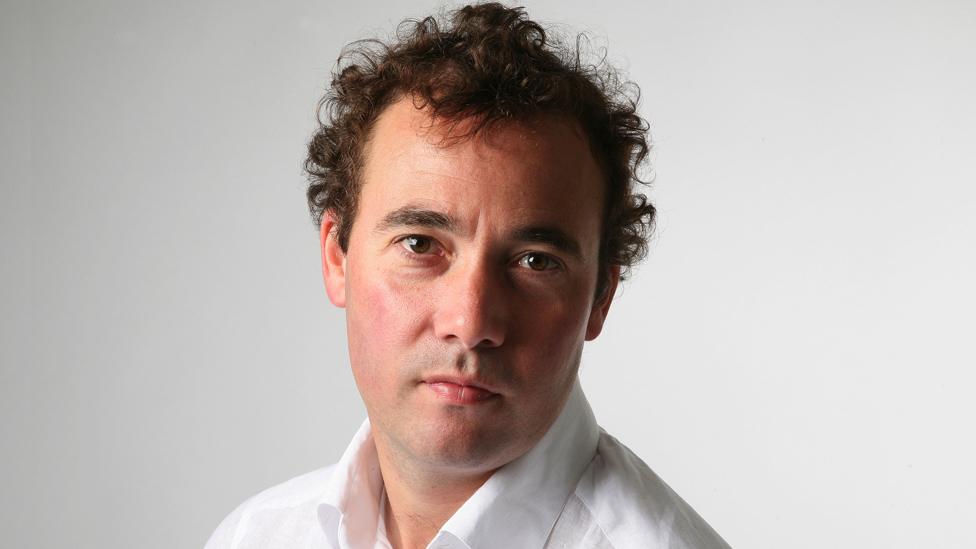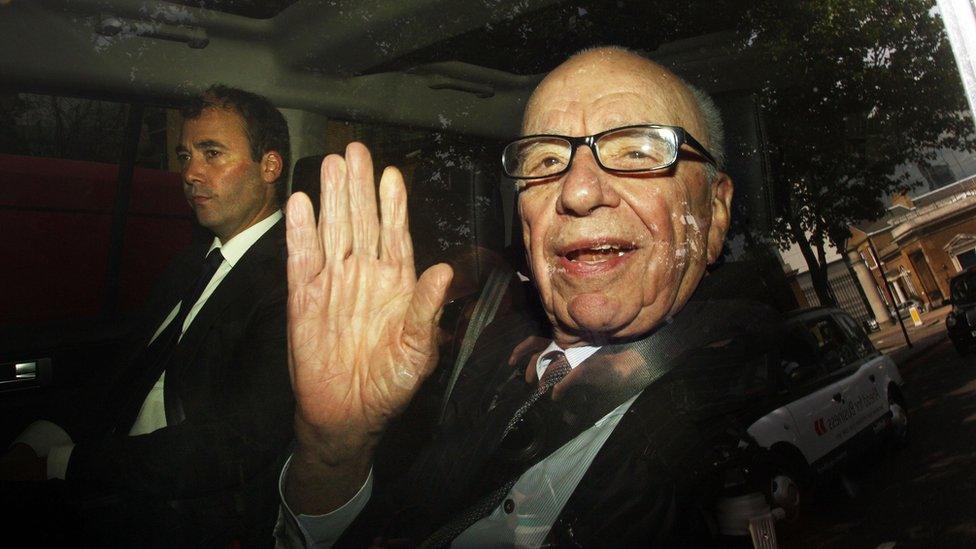Phone hacking: BBC director general candidate accused of destroying evidence
- Published

Will Lewis, one of the people shortlisted to be the next head of the BBC, has been accused of aiding the concealment and destruction of millions of emails relating to phone hacking at the News of the World and the Sun.
In doing so, the former Daily Telegraph editor hindered criminal investigations into the titles, it is claimed.
The allegations came to light in the High Court on Wednesday.
Mr Lewis said the allegations against him were "completely untrue".
The 51-year-old is one of four people being considered to replace Lord Hall as director general of the BBC.
The claims emerged in a 137-page document entitled "Re-amended particulars of concealment and destruction".
The document is part of ongoing litigation in which 49 claimants are currently suing The Sun and the now defunct News of the World for alleged phone hacking and unlawful information gathering.
There are an estimated further 83 claims being prepared.
In 2010, following his time at the Telegraph, Mr Lewis became group general manager of News Group Newspapers (NGN), the publishers of the News of the World and the Sun, and was there at the height of the phone hacking scandal.
In July 2011 he was appointed to the management standards committee, which was set up to assist the police who were investigating phone hacking and payments by journalists to public officials.
Mr Lewis is named in a long list of NGN executives, including former chief executives James Murdoch and Rebekah Brooks, and employees with alleged knowledge of a policy of concealment and destruction of evidence.
The document cites an email dated 11 January 2011 into which Mr Lewis was copied as alleged evidence of a cover up to allow NGN time to cover its tracks and delay police scrutiny.
It alleges that Mr Lewis knew of and had authorised a delay and suppression of evidence, and the targeted deletions of senior executives' emails.
He is also accused of having knowledge (by way of an email dated 24 January 2011 from Paul Cheesbrough - From 2010 until 2012, Mr Cheesbrough was chief information officer at News International 2010-2012 - to Ms Brooks, into which he was copied) of an alleged cover-up that allowed the wiping of back-up tapes and the creation of an "extraction laptop".

What does the document say about Mr Lewis?
The case against Mr Lewis is summarised in the document in the following paragraphs:
"Will Lewis, Group General Manager, News International (September 2010 to July 2011), and Executive Member, Management and Standards Committee (July 2011 to 2012)
"1. (51) Mr Lewis was part of the senior management which organised or allowed extensive deletions of millions of emails to take place without preserving back-ups, in September 2010 and in January and February 2011, even though he was aware of the need to preserve data for (a) the civil claims, which were in full swing by the time of his arrival in September 2010, and (b) by the second week of January 2011, the live police investigation (in this regard, it is to reasonable to infer that he was shown the letter from the MPS dated 7 January 2011 referred to in paragraph 11.60D above).
"2. (52) Mr Lewis was heavily and directly involved in the email deletion strategy relied on by the Claimants above (including both the batch and targeted deletions). Together with Mr Chapman, Mr Lewis was directly responsible for drafting the vague criteria for emails to be preserved at the time of the batch deletions, which, as Mr Lewis was aware at the time, meant that any data that was considered not to fall within the criteria would be deleted."


Will Lewis (left) denies the allegations, which relate to his time at Rupert Murdoch's News Group Newspapers
The document alleges that phone hacking and other unlawful means of obtaining private information was both habitual and widespread at the two tabloids from 1994 to 2011, a longer period than was previously alleged, to the effect that it started much earlier and ended later than previously claimed.
Denying the allegations, Mr Lewis said: "The allegation that I was involved in any wrongdoing is completely untrue.
"My role was to put things right, and that is what I did".
Ms Brooks was acquitted of conspiracy to hack voicemails, two counts of conspiracy to pay public officials and two counts of conspiracy to pervert the course of justice following a criminal trial in 2014.